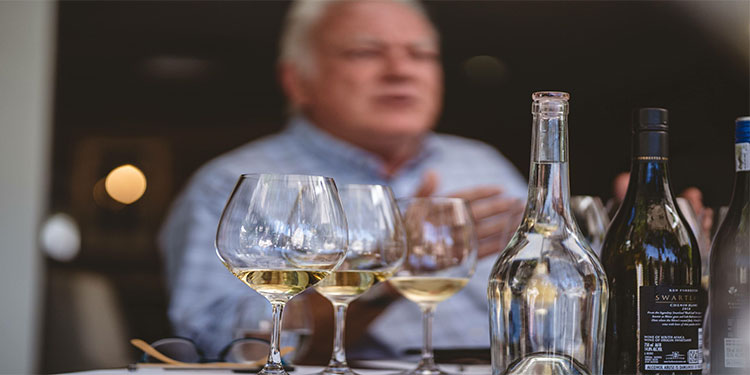
The “Premiumization and Value Growth of South African Chenin Blanc Wine” programme has been introduced by South Africa Wine, Stellenbosch University, the South African Grape and Wine Research Institute (SAGWRI) and the Chenin Blanc Association of South Africa (CBA). This programme, led by Professor Melané Vivier and a group of scholars, attempts to raise awareness of and improve the viability of the South African Chenin Blanc industry economically. The project is a major step towards sustainability and innovation in the South African wine industry, with over R4 million invested over three years by South Africa Wine and co-funding from the National Research Foundation (NRF).
With almost a century of history, Stellenbosch University and the South African wine industry have a strong and long-standing relationship. Pinotage was developed for the industry in 1925 by Stellenbosch University’s first viticulture professor, Professor Abraham Izak Perold, through a hybrid between Pinot Noir and Cinsaut.
The project’s focus element, Chenin Blanc, was selected because of its growing renowned and extensive cultivation. Additionally, it is a prime candidate for investigation due to significant industry experience in producing fine wines from Chenin Blanc grapes.
Value increase in bulk and packaged wines is necessary to ensure the economic survival of South African wine producers, who encounter numerous obstacles in this regard. This project uses interdisciplinary approaches to directly address these challenges. The project’s goal is to guarantee the profitability of South African Chenin Blanc wines, with a focus on finding a careful balance between grape production and wine quality.
This project’s significance is found in its comprehensive analysis of the sustainability of the entire Chenin Blanc value chain. The study aims to produce thorough insights into many facets of winemaking and viticulture.
Chairman and co-founder of the Chenin Blanc Association (CBA), Ken Forrester, states, “This project underscores our longstanding belief in Chenin’s adaptability, excellence and potential to compete internationally.” We stress the importance of South African Chenin Blanc in our sector and are thrilled to be a partner in developing this study.
A key component of the experiment entails planting 19 distinct trellising systems in a model Chenin Blanc vineyard, producing yield scenarios that range from extremely high to extremely low. With a sizable financial contribution from Vinpro, Stellenbosch University and Vinpro worked together to construct the Welgevallen vineyards. The Chenin Blanc vineyard serves as a model for all trellising methods, both irrigated and dryland that are employed in South Africa’s wine regions.
The best microbial consortia, winemaking methods and production tactics will be found by thorough investigation and analysis in order to improve the premiumization of South African Chenin Blanc wines in all price ranges.
Funding for the experiment will come from student bursaries and it expands on earlier research by Chenin Blanc. The project’s outcomes will be disseminated to the industry using a variety of avenues for knowledge transfer.
Using a market-driven methodology, the initiative aims to customize grape growing and winemaking procedures to correspond with consumer tastes and market needs. Data-driven decision-making and industry-wide innovation will be fueled by integrated data analysis, economic assessments and proven outcomes, according to Prof. Vivier.
We are excited to set out on this cooperative journey to bring South African Chenin Blanc wines to their greatest potential. We want to promote distinctiveness and sustainable growth in the sector by collaborating with different industry players,” she says.



